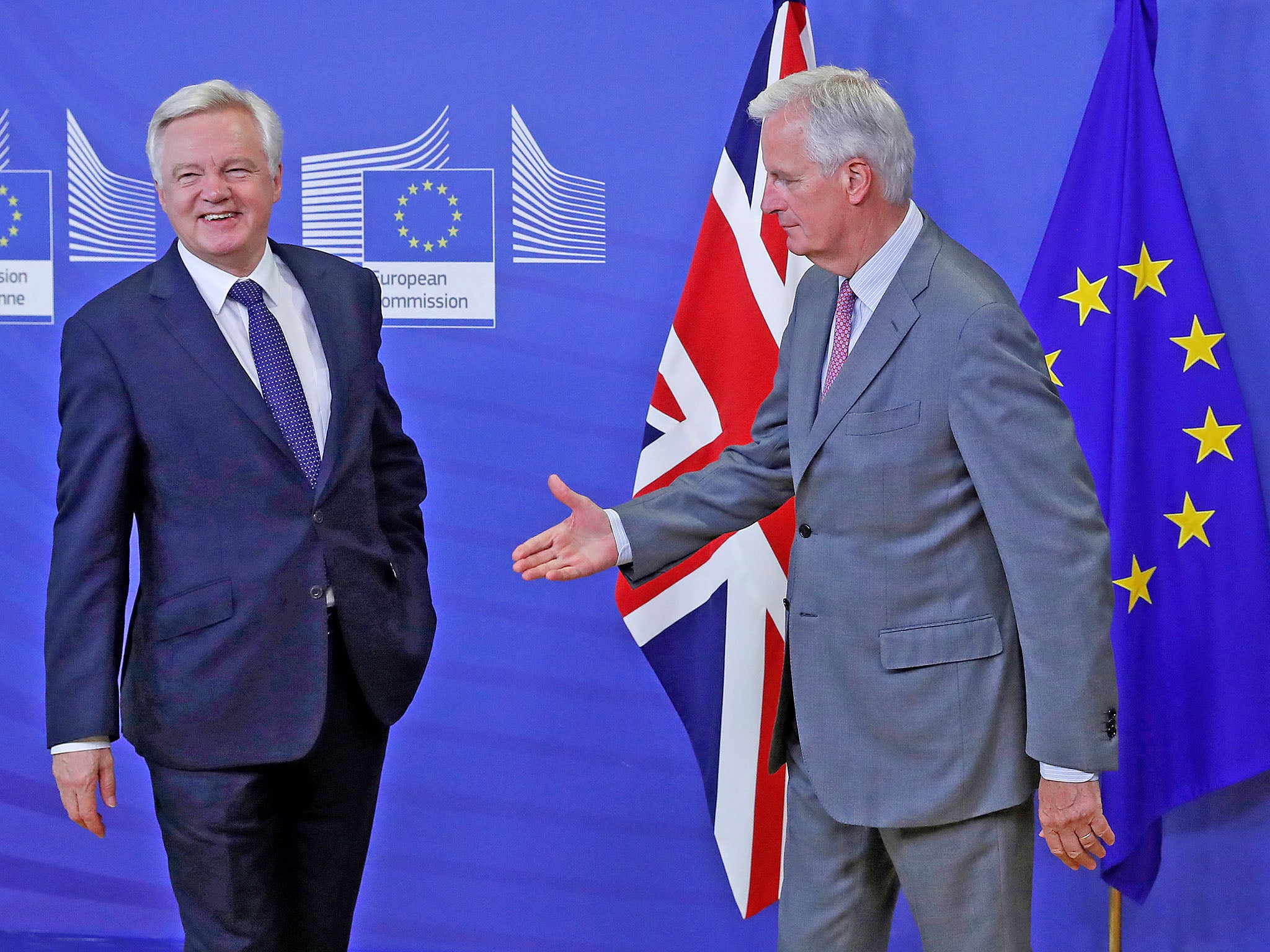Brexit: UK business could face 'huge new bureaucratic burdens' after leaving the EU due to new customs union plan
It comes as the Government publishes a 14-page document outlining its position for the Brexit negotiations on a future customs arrangement

Your support helps us to tell the story
From reproductive rights to climate change to Big Tech, The Independent is on the ground when the story is developing. Whether it's investigating the financials of Elon Musk's pro-Trump PAC or producing our latest documentary, 'The A Word', which shines a light on the American women fighting for reproductive rights, we know how important it is to parse out the facts from the messaging.
At such a critical moment in US history, we need reporters on the ground. Your donation allows us to keep sending journalists to speak to both sides of the story.
The Independent is trusted by Americans across the entire political spectrum. And unlike many other quality news outlets, we choose not to lock Americans out of our reporting and analysis with paywalls. We believe quality journalism should be available to everyone, paid for by those who can afford it.
Your support makes all the difference.Increased red tape could be imposed on British businesses after Brexit, it has been claimed, following the Government’s publication of a document outlining its negotiating position for a future customs union arrangement.
The 14-page “future partnership paper” – published on Tuesday – outlines two models for a potential customs arrangement between the UK and the EU that appear to increase bureaucracy for businesses.
Despite promises by the official Vote Leave campaign during last year’s referendum that red tape would be slashed for British firms, it emerged they could face “an increase in administration” under new arrangements.
In one option put forward by the Brexit Secretary David Davis’s department, the UK could enter a “new customs partnership” with the EU, “aligning our approach to the customs border in a way that removes the need for a UK-EU customs border”.
“One potential approach would involve the UK mirroring the EU’s requirements for imports from the rest of the world where the final destination is the EU,” it adds, despite claiming to seek to make trade as “frictionless” as possible after Brexit.
The document, which Whitehall officials claim is intended to be the start of a wider dialogue with businesses over future arrangements, adds: “This is of course unprecedented as an approach and could be challenging to implement and we will look to explore the principles of this with business and the EU.”
A second plan – a “highly streamlined customs arrangement” – would mean new IT systems are also likely to be required at borders while firms could be asked to self-assess their own customs duties.
Admitting the plans are “untested and innovative” Mr Davis said the proposals set out by the UK Government “will benefit both the EU and UK and avoid a cliff-edge for businesses”.
“The way we approach the movement of goods across our border will be a critical building block for our independent trade policy,” Mr Davis added. “An interim period would mean businesses only need to adjust once to the new regime and would allow for a smooth and orderly transition.”
But Labour sources close to the Shadow Brexit Secretary Keir Starmer told The Independent the plans “would add huge new bureaucratic burdens and delays for British businesses”.
A briefing by officials also made clear that Britain would attempt to negotiate trade deals during the “interim arrangement” but wouldn’t be free to implement the deals during the same period.
The policy paper was also immediately seized upon by Guy Verhofstadt, the European Parliament’s chief Brexit coordinator, who posted on Twitter: “To be in and out of the customs union and ‘invisible borders’ is a fantasy. First need to secure citizens’ rights and a financial settlement.”
Nicola Sturgeon, the Scottish First Minister, added the Government’s position was “daft”, adding the Brexit department should commit to membership of the customs union.
Join our commenting forum
Join thought-provoking conversations, follow other Independent readers and see their replies
Comments